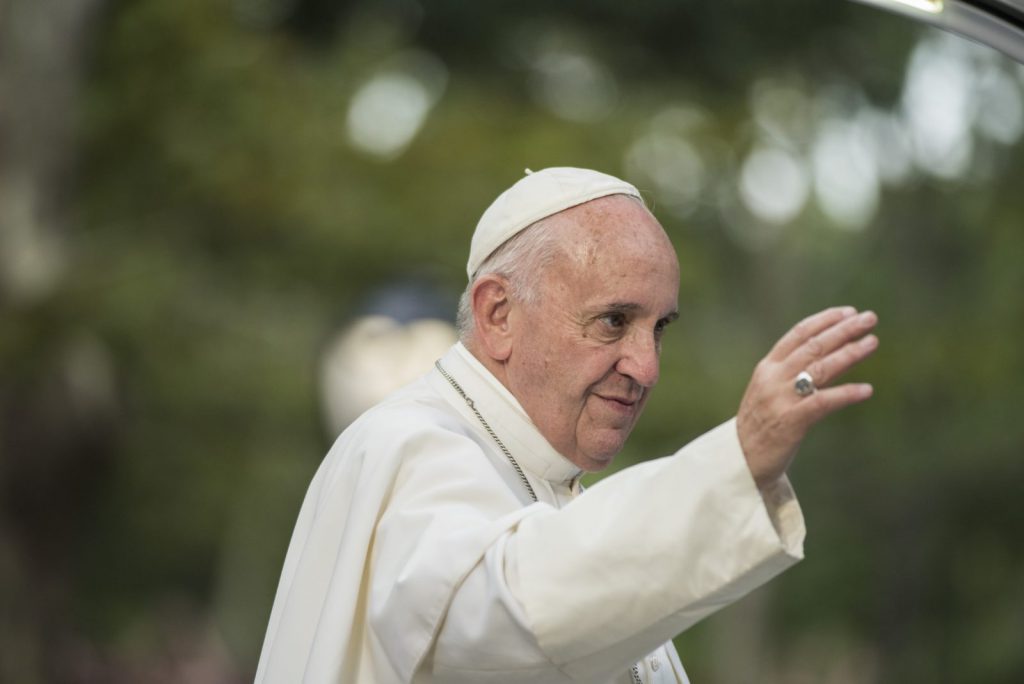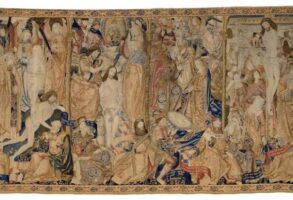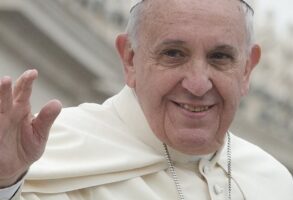
Published September 25, 2017
Pope Francis likes to stir things up, to create debate. In this, he reminds me of nothing more than another frequently misunderstood popular figure, one Jesus of Nazareth. Just imagine Twitter’s reaction to the bit about giving back to Caesar what is owed to Caesar. Half would have denounced Jesus as a stooge of the Romans and the other half as a dangerous fanatic bent on anti-Roman war. Pharisees and Sadducees could not “process” Jesus because they tried to fit him in their political categories, while he was about something else. If the pope says “Who am I to judge?,” it is imperative that I try to use that as a culture war weapon, lest I accidentally start to ask myself how much I am judging my neighbor and what I should do about it.
It is fine to have debate within the church. I just wish the debate were a little less—what’s the theological term of art again?—oh, yes: a little less dumb.
Take the latest episode in the never-gonna-die controversy around “Amoris Laetitia.” A group of Catholics has published a letter of “filial correction” asking—politely, pretty please, no offense—the pope to stop being such a heretic.
Nevermind the merits of this issue: Whose bright idea was it to include among the signatories of a document lecturing about heresy the infamous Bishop Bernard Fellay, head of the breakaway traditionalist group the Society of St. Pius X? What response is any faithful Catholic, even one sympathetic to the letter’s argument, supposed to give to a letter lecturing the pope about Catholicism signed by someone whose career and vocation is dedicated to undermining communion with the See of Peter, other than peals of laughter?
After lecturing the pope in Latin (of course), the letter includes appendices denouncing “Modernism” and Protestantism (of course), in which the authors feel it necessary to remind the pope that among Catholic doctrines is the proposition that “Jesus Christ is true God and true man.” Imagine the levels of self-righteous passive aggression it takes to write a public letter about how you are sadly forced to remind the pope of Rome that Catholics believe Jesus is divine. It is like contemplating infinity.
Not that the “other side” (because everything must be boiled down to two sides, because everything is dumb) did much better with its response. I will take this article from the National Catholic Reporter as representative. Nobody needs to worry about this filial correction, we are helpfully informed, not because it is wrong, but because the signatories are not theologians and are ill-represented among academics and bishops. I now await the condemnation of St. Catherine of Siena for her gall to rebuke the pope despite her lack of theological credentials and ecclesiastical support and will revisit my view of the Inquisition’s condemnation of Joan of Arc. Come to think of it, that fellow Jesus of Nazareth did not have a doctorate and did not have many friends among the religious authorities of the day.
I am not being acidly sarcastic for its own sake. There is a serious theological point, which I will make despite my distinct lack of theological degrees, which is that nothing could be further from the spirit of the Christian faith than the idea that faith and morals are accessible only to the learned and or that the best way to divine them is to tally up the views of the powerful. Then there is a serious prudential point: These repeated appeals to authority seem almost purposefully designed to validate the pope’s critics’ point that the pro-Francis wing of the church cannot respond to their arguments on the merits, and so they must resort to a combination of mumbo-jumbo and appeals to authority to silence critics.
Stepping back, what is the problem? We are not just shouting at each other on social media—we are sneering at each other. The failure is not one of communication; it is one of charity. People believe what they believe for reasons that are sincere, profound and complex. The pope wants us to debate. I say: Do it better.
Pascal-Emmanuel Gobry, who lives in Paris, is a contributing writer to America, a fellow at the Ethics and Public Policy Center in Washington, D.C., and a columnist at TheWeek.com.








